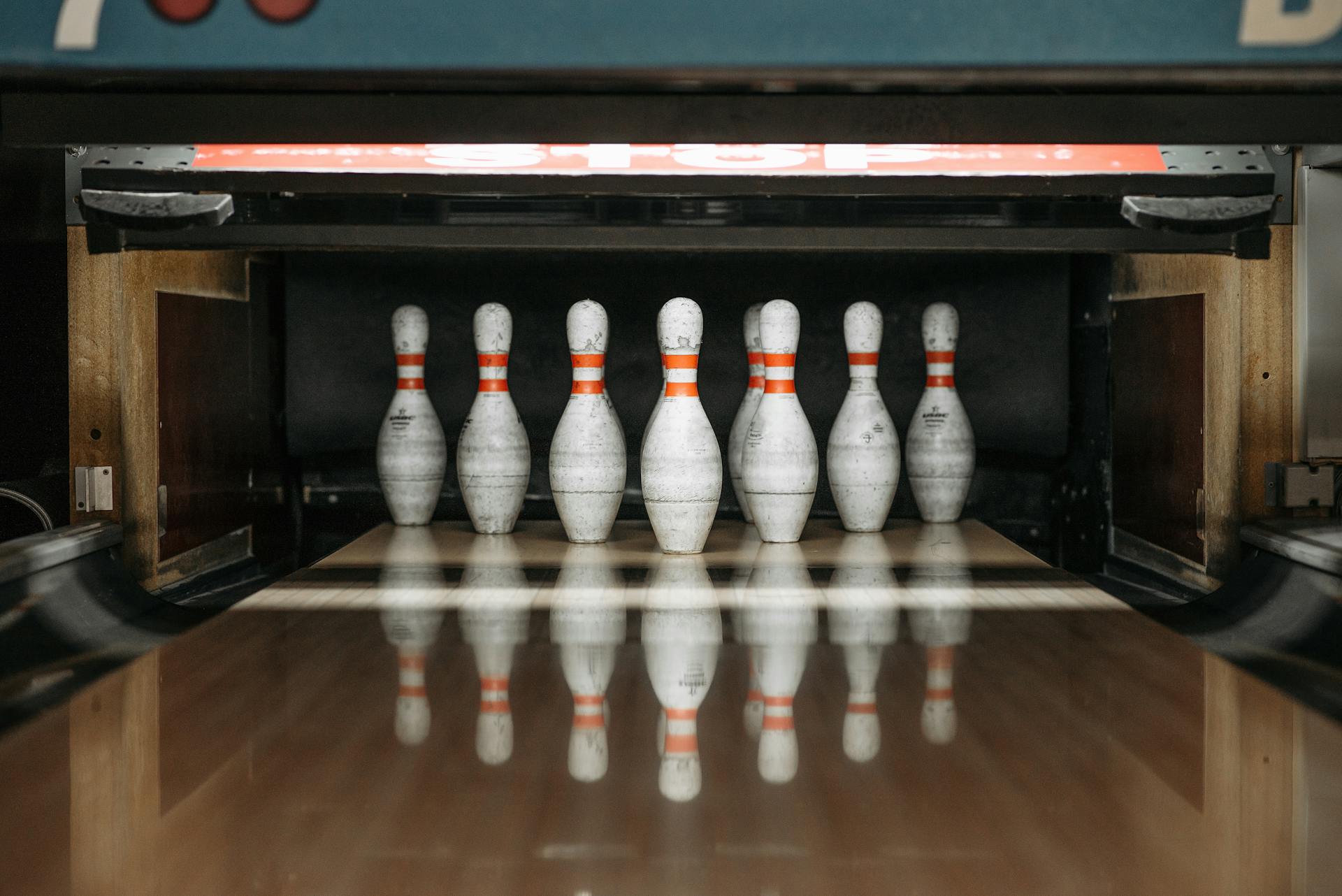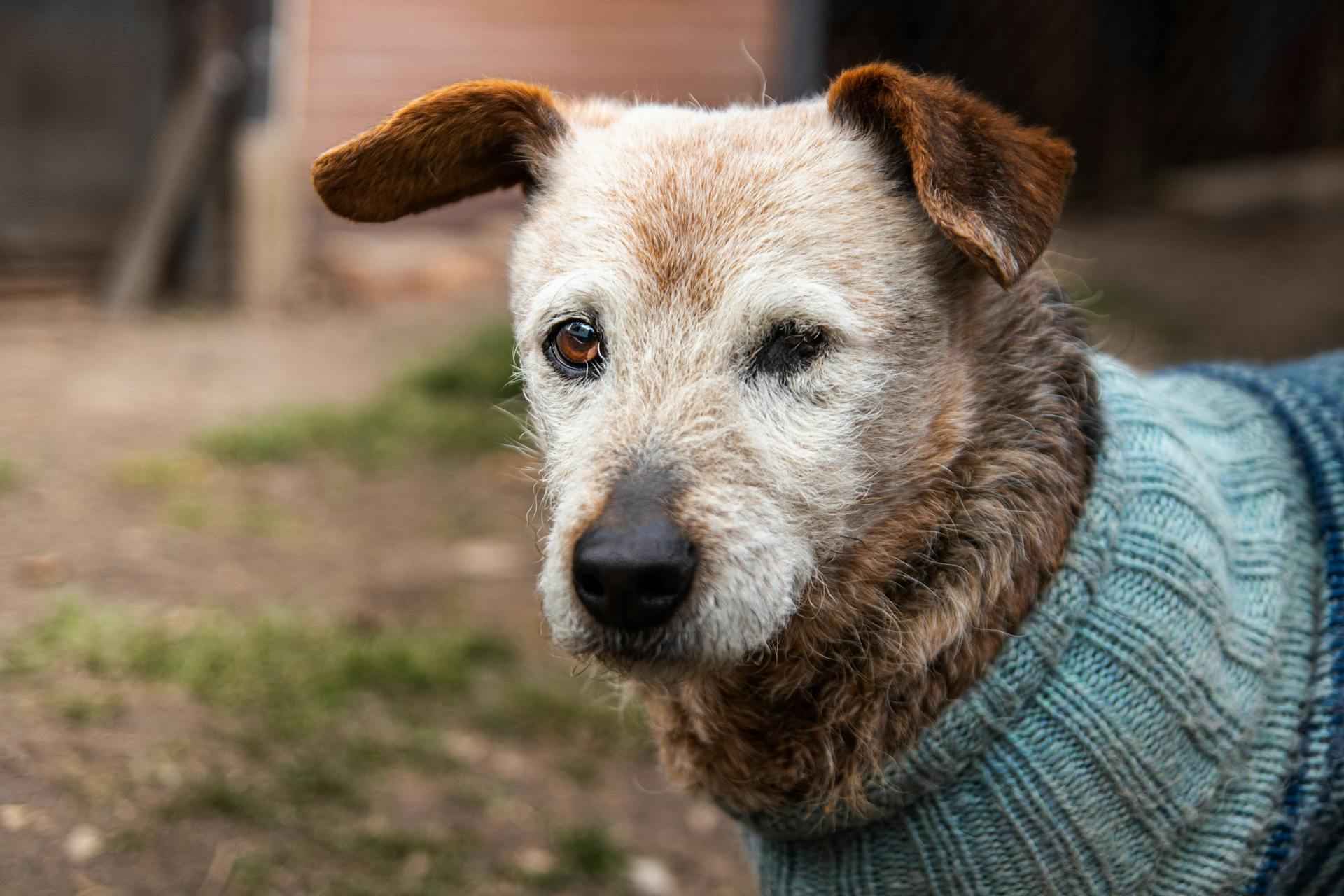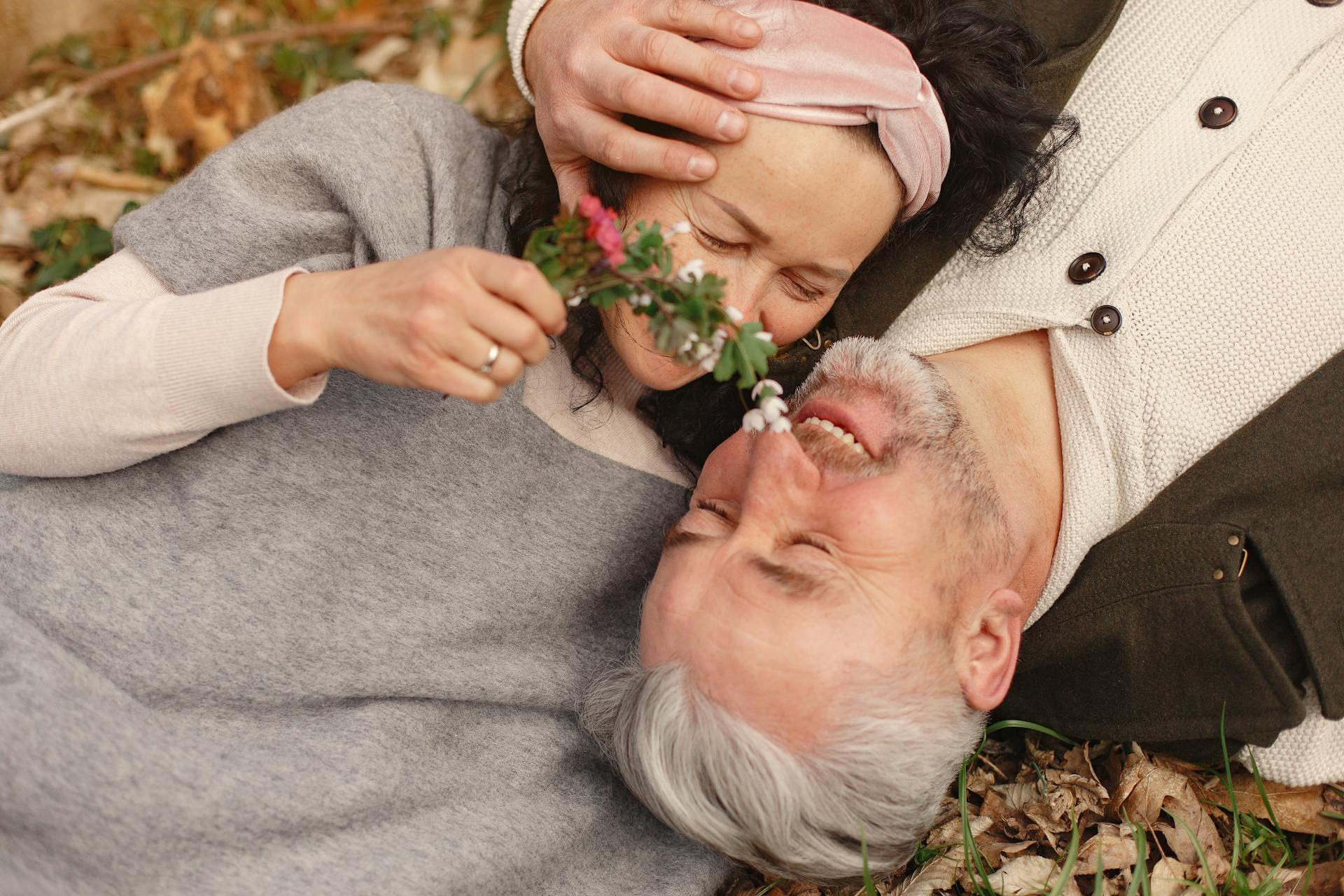
As a Min Pin owner, you're probably aware that these tiny dogs can live up to 12-15 years, but their golden years can bring some age-related problems.
Their small size makes them prone to weight gain, which can exacerbate joint issues and increase the risk of obesity-related health problems.
Regular exercise and a balanced diet can help prevent or manage these issues, but it's essential to adjust their physical activity and food intake as they age.
Min Pins are also susceptible to dental problems, such as tooth decay and gum disease, which can be painful and even lead to systemic infections.
A fresh viewpoint: Human Years
Common Health Issues
As your Miniature Pinscher ages, it's essential to be aware of the common health issues that can arise. Legg-Calve-Perthes disease is a genetic condition that can cause back and joint pain in small breeds. This condition is often treated through surgery and physiotherapy.
Miniature Pinschers are also prone to patellar luxation, where the kneecap slips out of its groove. Depending on the severity, it can cause anything from a mild limp to severe lameness. If your dog exhibits symptoms like intermittent skipping or hopping on one leg, abnormal hindlimb movement, or occasional yelping when moving, a vet's visit is a must.
A fresh viewpoint: Miniature Poodle Problems
Progressive retinal atrophy (PRA) is another condition that affects the retina in your dog's eyes, eventually leading to blindness. While PRA is not curable, antioxidant supplements and lifestyle adjustments can help slow the disease progression and maintain your dog's quality of life.
Here are some common health issues that can affect Miniature Pinschers as they age:
- Legg-Calve-Perthes disease
- Patellar luxation
- Progressive retinal atrophy
- Hypothyroidism
- Epilepsy
It's crucial to schedule regular veterinary check-ups to monitor your dog's health and detect any potential problems early on. A blood test can diagnose hypothyroidism, and medication can be prescribed to supplement the hormones that should be produced by the thyroid.
Signs of Aging in Dogs and Care
As your Miniature Pinscher (Min Pin) ages, you may notice some changes in their behavior and physical appearance. Cloudy eyes or difficulty seeing is a common occurrence in senior dogs, which can be a sign of canine cataracts or other eye diseases.
Changes in your dog's behavior can also signal an underlying physical problem or be a normal sign of aging. For example, if your Min Pin suddenly turns grumpy, they may be in pain caused by arthritis or experiencing some other physical discomfort.
New lumps and bumps on your dog's skin are more common as they age, and your vet should check any new lumps to rule out a malignant tumor. This is especially true for Min Pins, which are prone to developing fatty lipomas.
Your Min Pin's weight can also change as they age, and it's essential to monitor their weight closely. If they gain weight, you may need to adjust their diet and exercise routine. On the other hand, if they lose weight, it could be a sign of reduced muscle mass, reduced appetite, or a digestive illness.
Here are some common signs of aging in dogs, including Min Pins:
- Cloudy eyes or difficulty seeing
- Horrible breath (which could indicate gum disease, tooth decay, or oral infection)
- Slowing down or difficulty getting around (which could be caused by canine arthritis or another degenerative disease)
- New lumps and bumps
- Change in weight
- Incontinence or difficulty peeing or pooping
If you notice any of these signs, it's essential to consult with your vet to determine the underlying cause and discuss treatment options. With some vigilance and attention to your dog's health, you can make their senior years comfortable and enjoyable.
Miniature Pinscher Overview
The Miniature Pinscher is a small but feisty breed, weighing between 8-12 pounds and standing about 10-11 inches tall. They're known for their spunky attitude and energetic personalities.
Their short coats require minimal grooming, but they do need regular exercise to stay happy and healthy. A daily walk and playtime should suffice, but they can get bored if they don't get enough mental stimulation.
Miniature Pinschers are generally a healthy breed, but like all dogs, they can be prone to certain health issues as they age.
Expand your knowledge: Miniature Schnauzer Old Age Problems
Breed History
The Miniature Pinscher originated in Germany, where they were initially used as ratting dogs on farms. They were first called the "Reh Pinscher" due to their supposed similarity to the reh (roe) deer.
Their ancestors include the German Pinscher, Dachshunds, and Italian Greyhounds. The Miniature Pinscher is actually an older breed than the Doberman Pinscher, despite their physical resemblance.
In the early 1900s, the Zwergpinscher gained popularity in Germany and later spread to Scandinavian countries. By 1919, the first Miniature Pinschers were imported to the United States.
The American Kennel Club recognized the breed in 1925, and it's been a beloved companion dog ever since.
For your interest: Old Doberman Pinscher
Miniature Pinscher Size
Miniature Pinschers are quite small, weighing in at 8-10 pounds for both males and females.
Their height is also relatively modest, ranging from 10-12.5 inches at the shoulder.
These dogs have a unique, high-stepping gait similar to that of the Hackney horse, often referred to as a "hackney gait".
Frequently Asked Questions
What is the life expectancy of a Min Pin?
A Miniature Pinscher's lifespan is typically 12-16 years, allowing for a long and loving relationship with your pet. With proper care, they can live a happy and healthy life for over a decade.
What are the neurological problems with Min Pins?
Min Pins are prone to cervical dry disk, a common neurological issue that affects the neck and spine, causing stiffness, muscle spasms, and potentially paralysis. This condition can significantly impact a Min Pin's quality of life and requires prompt veterinary attention.
What is the maximum age for a Miniature Pinscher?
The maximum age for a Miniature Pinscher is 16 years, although individual lifespans can vary based on factors like diet and exercise.
Sources
- https://www.thesprucepets.com/breed-profile-miniature-pinscher-1117981
- https://www.aspcapetinsurance.com/resources/miniature-pinscher/
- https://www.akc.org/expert-advice/health/aging-in-dogs-physical-mental-signs/
- https://www.metlifepetinsurance.com/blog/breed-spotlights/miniature-pinscher/
- https://iheartdogs.com/know-the-signs-5-most-common-health-issues-in-miniature-pinschers/
Featured Images: pexels.com


